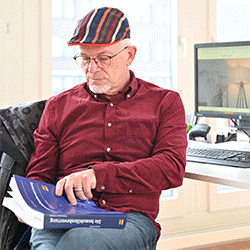In the will, the testator can decide which person receives the property and which descendant receives other assets such as a sum of money. If the testator has not made a will, intestate succession applies.
Especially when bequeathing property to several descendants, it makes sense to set out the last will and testament in writing. This can prevent a community of heirs from receiving the house or flat and possibly arguing about its further use.
Another case is also frequently encountered: A married couple with two daughters want to bequeath their home to a grandchild after their death. They need a will for this. If the statutory succession were to apply, the property would be transferred to the daughters. The grandson would receive nothing.
However, not all close relatives can be passed over in a will. There is the so-called compulsory portion. It forces the testator to also consider close relatives.
The will should be drawn up with the help of a specialist inheritance lawyer or notary. The notary's fee is based on the amount of the estate.
In principle, a handwritten letter containing the last will and testament is also legally valid. However, all formal criteria must be fulfilled. If this is not the case, it is invalid. There are various will templates available on the internet, but they do not always provide legally sound results, as Stiftung Warentest found out in summer 2018. The tool asks about the personal situation and the wishes for passing on the inheritance. The tool then provides corresponding text modules. It is not enough to print out this text and sign it. Instead, the entire document must be handwritten and then signed.
In addition to a will, there is also the option of concluding an inheritance contract with the persons who are to be included in the will. This must be notarised. The testator must not only have testamentary capacity, as is the case when writing a will, but must also have legal capacity. An inheritance contract is often concluded in special circumstances, for example if a company is to be passed on to a successor step by step or the inheritance of a property is linked to the fact that the beneficiary may be obliged by mutual agreement to provide certain care services for the testator before his or her death. A will would not be sufficient, as this can be changed unilaterally at any time.
Have you inherited a property and don't know how to proceed? We will be happy to help you.
Photo: djedzura









